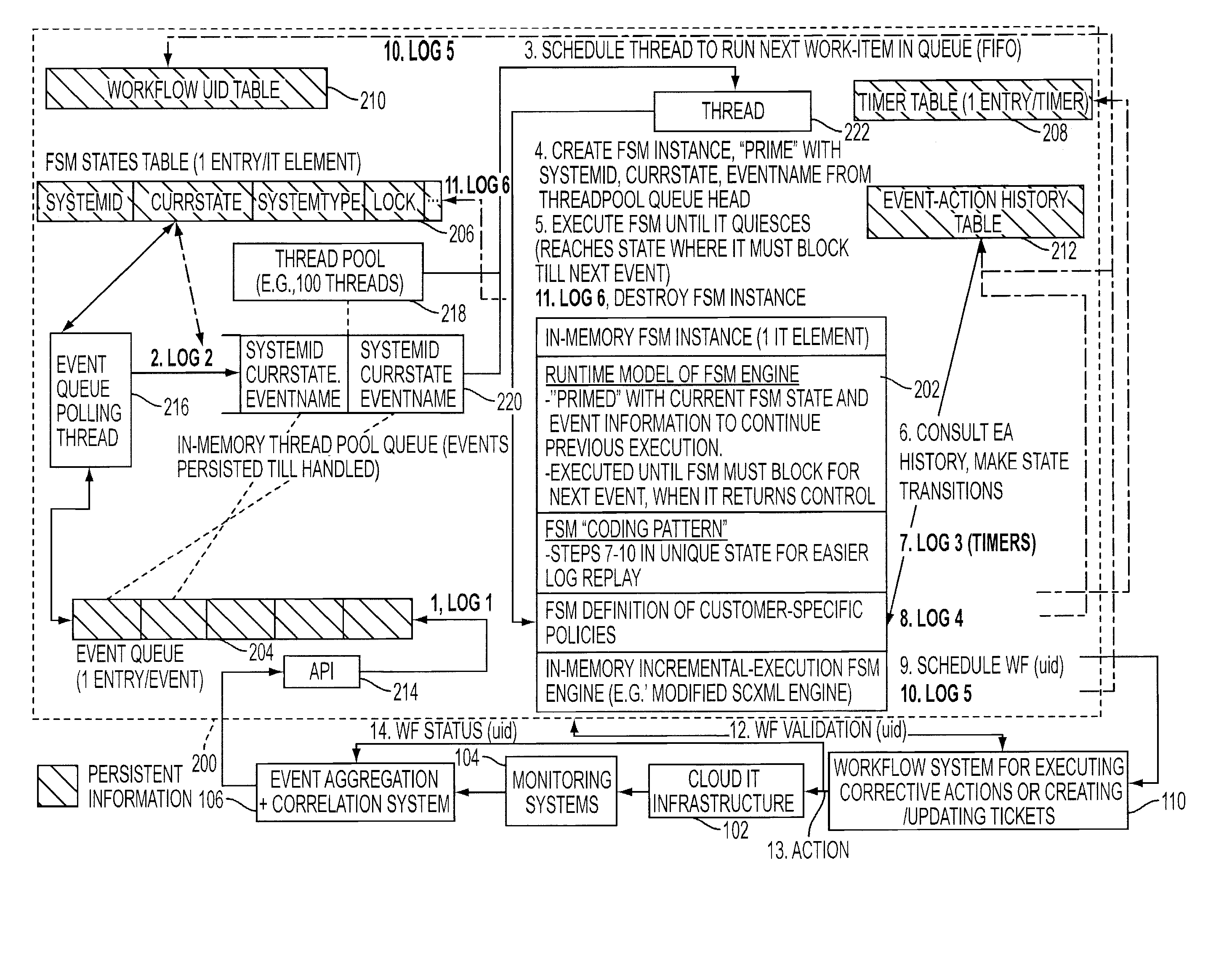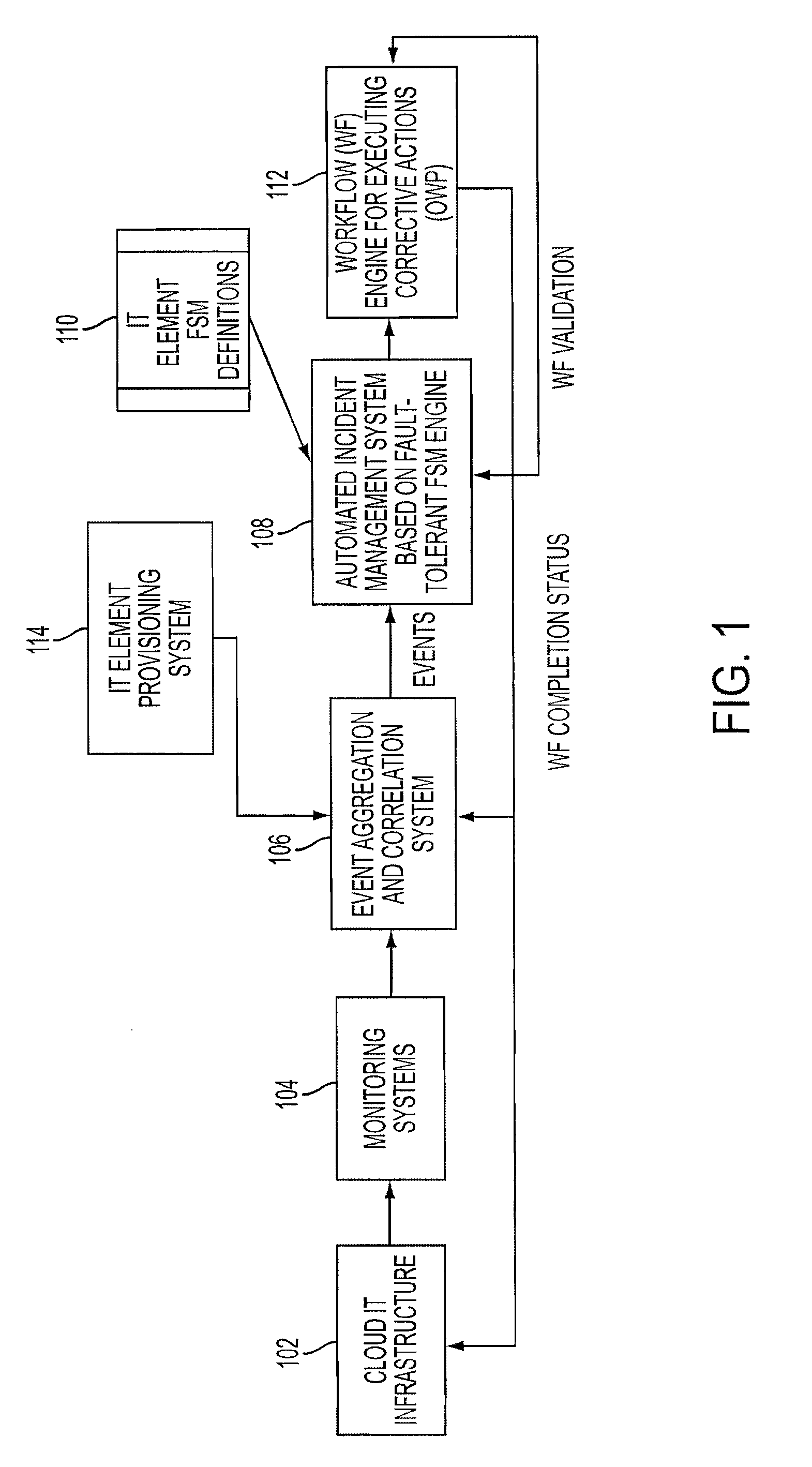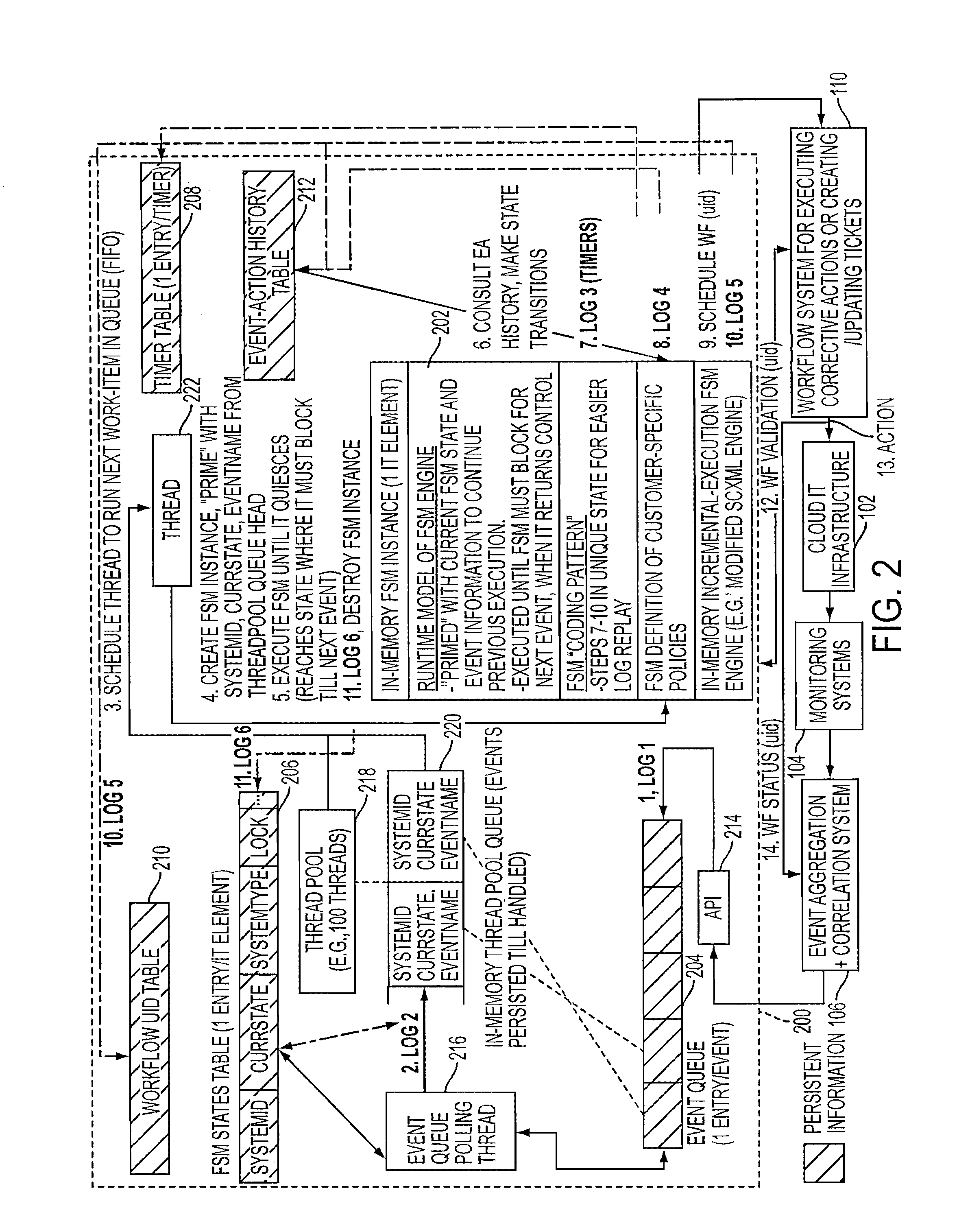Adding scalability and fault tolerance to generic finite state machine frameworks for use in automated incident management of cloud computing infrastructures
a cloud computing infrastructure and fault tolerance technology, applied in the field of computer systems, can solve the problems of extremely labor-intensive incident management and large infrastructure management, and achieve the effect of reducing the number of incidents
- Summary
- Abstract
- Description
- Claims
- Application Information
AI Technical Summary
Benefits of technology
Problems solved by technology
Method used
Image
Examples
Embodiment Construction
[0018]An Automated Incident Management System (AIMS) can be modeled as a set of Finite State Machines (FSM). Each FSM represents a type of IT element in the Cloud Computing infrastructure—such as a server hosting virtual machines, a network element such as a router or switch, a storage element such as an NFS server providing shared storage to a set of servers—and also middleware or software elements running in physical or virtual machines such as a Web application server, a database management system, and others. An FSM for an IT element type models the different states that the element can be in, from “birth” (when the element is first brought into the Cloud data center and is ready to be put into service) to “death” (when the element is declared to be so faulty as to be unusable). For each state, an FSM can be used to represent how it should respond to an external event (in the case of AIMS, the event representing a potential fault or status notification for instance)—by transitio...
PUM
 Login to View More
Login to View More Abstract
Description
Claims
Application Information
 Login to View More
Login to View More - R&D
- Intellectual Property
- Life Sciences
- Materials
- Tech Scout
- Unparalleled Data Quality
- Higher Quality Content
- 60% Fewer Hallucinations
Browse by: Latest US Patents, China's latest patents, Technical Efficacy Thesaurus, Application Domain, Technology Topic, Popular Technical Reports.
© 2025 PatSnap. All rights reserved.Legal|Privacy policy|Modern Slavery Act Transparency Statement|Sitemap|About US| Contact US: help@patsnap.com



